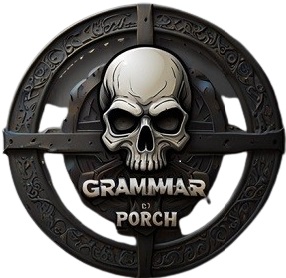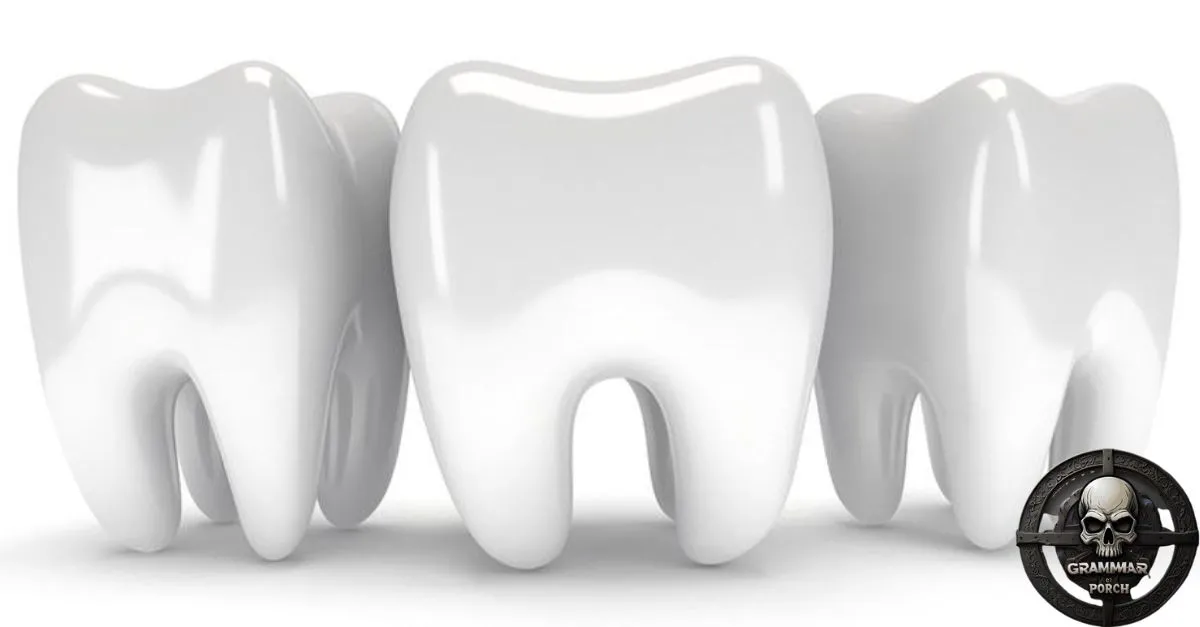Irregular plurals can be tricky, and the plural form of tooth often causes confusion. Many wonder: should we say “tooths” or “teeth”. The answer lies in the fascinating quirks of English’s linguistic history, where irregular forms like “teeth” have evolved due to old vowel shifts.
Unlike regular nouns that simply add an “s” to form plurals, words like “tooth” follow a different path, changing in spelling and sound altogether. In this article, we’ll explore why the correct plural is “teeth,” looking at its origins, the historical vowel shift that caused this change, and how these rules apply in grammar. By the end, you’ll know exactly when to use “tooth” and “teeth” with confidence.
Why Is There Confusion Over the Plural of Tooth?
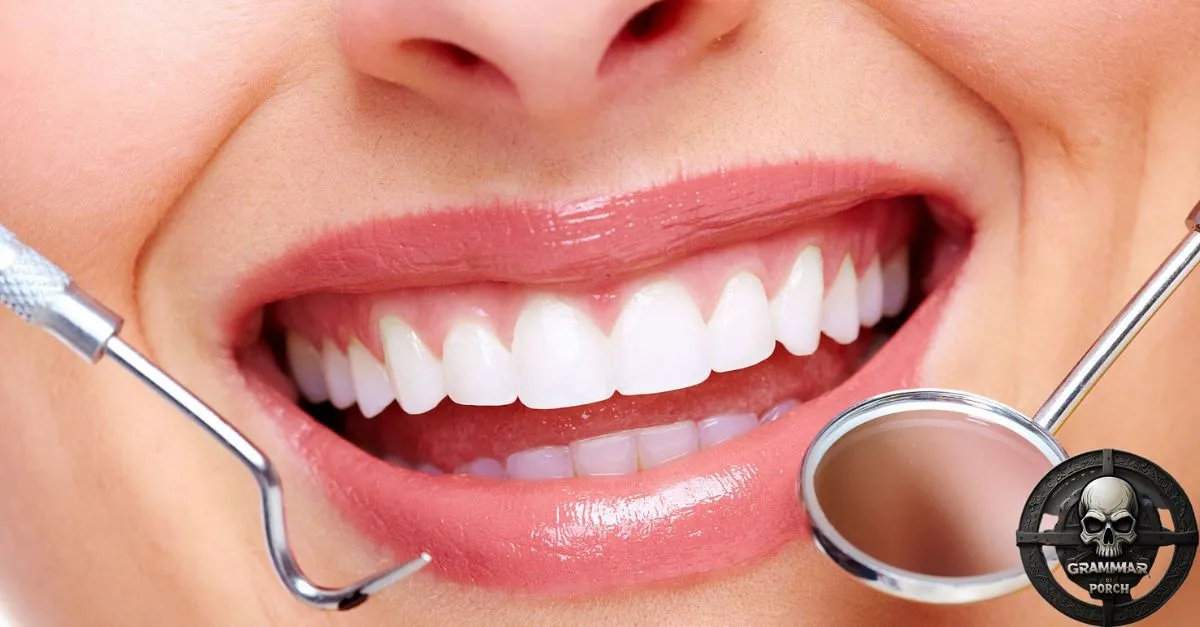
The plural form of tooth is confusing because English doesn’t follow one set rule for all pluralization. In many cases, you just add an “s” to make a word plural, like “cat” to “cats.” However, some words like “tooth” undergo an irregular plural change due to historical vowel shifts and linguistic processes. This irregularity has led to many common mistakes and the misconception that “tooths” could be correct. Understanding these exceptions can help clarify language usage and prevent pluralization errors.
The reason for this confusion lies in the evolution of English itself. Historically, English went through a phase of i-mutation or i-umlaut, where certain vowels in a word’s root changed to form the plural. This process is what gives us “tooth” in the singular form and “teeth” in the plural form instead of a straightforward “tooths.”
Is the Tooth Word Correct?
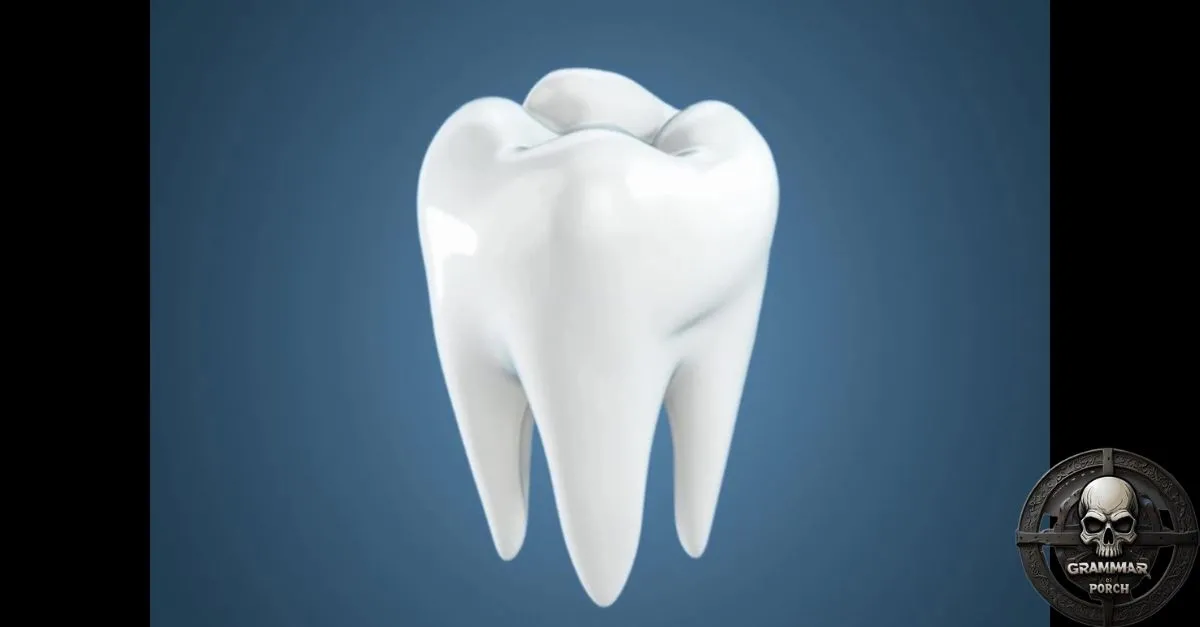
The word “tooth” is correct in English and is commonly used to refer to a single tooth in the mouth. A tooth is essential for chewing, biting, and aiding in speech. It is a countable noun in English, meaning you can count one or more teeth.
It follows standard grammar rules for nouns, with “tooth” as the singular and “teeth” as the plural form.
Definition:
A tooth is a small, hard structure in the mouth used for chewing food and forming sounds. It is made of enamel and is found in various forms, such as molars, incisors, and canines.
Meaning:
The term “tooth” refers to an individual unit of the dental structure located in the mouth. Humans have different types of teeth for different functions, such as chewing or tearing food.
Singular Form of Tooth
The singular form of tooth simply refers to one tooth in the mouth. Each tooth has a specific role, contributing to the structure of the mouth and playing an important part in dental hygiene and health.
When talking about a single tooth, you’re using it in its singular form as a countable noun.
Is the Plural of Tooth “Tooths” or “Teeth”?
The correct plural form of tooth is “teeth.” This form follows an irregular plural noun rule where the vowel changes instead of simply adding “s” or “es” at the end. “Tooths” is incorrect in standard English, although it may appear as a mistake among those unfamiliar with irregular plurals.
This transformation from “tooth” to “teeth” comes from an ancient vowel shift where the vowel sound changed to make the plural. This pattern occurs in several English words, such as “foot” becoming “feet” or “goose” becoming “geese.”
Is the Tooths Word Correct?
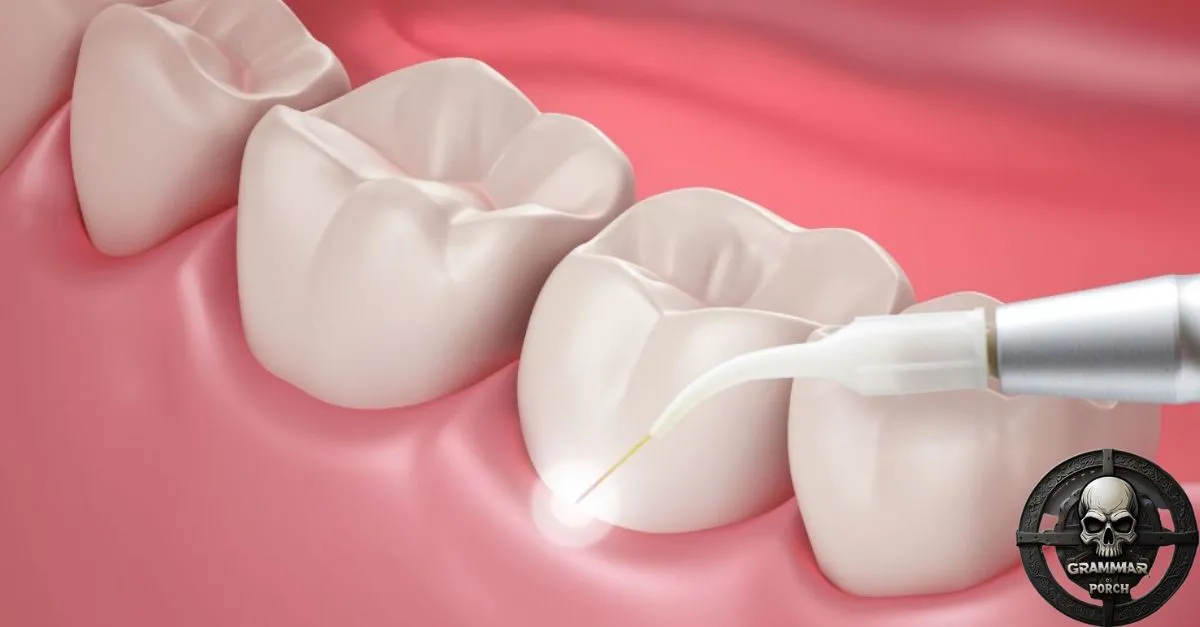
“Tooths” is not a correct word in English. While it might seem like a logical plural based on other pluralization rules, it does not follow the historical linguistic process that shaped “tooth” into “teeth.”
Definition:
The word “tooths” does not exist in English grammar as an accepted plural form of tooth.
Meaning:
If someone uses “tooths,” it’s considered a mistake. The correct plural is “teeth,” reflecting the irregular vowel change that occurred over centuries.
Is the Teeth Word Correct?
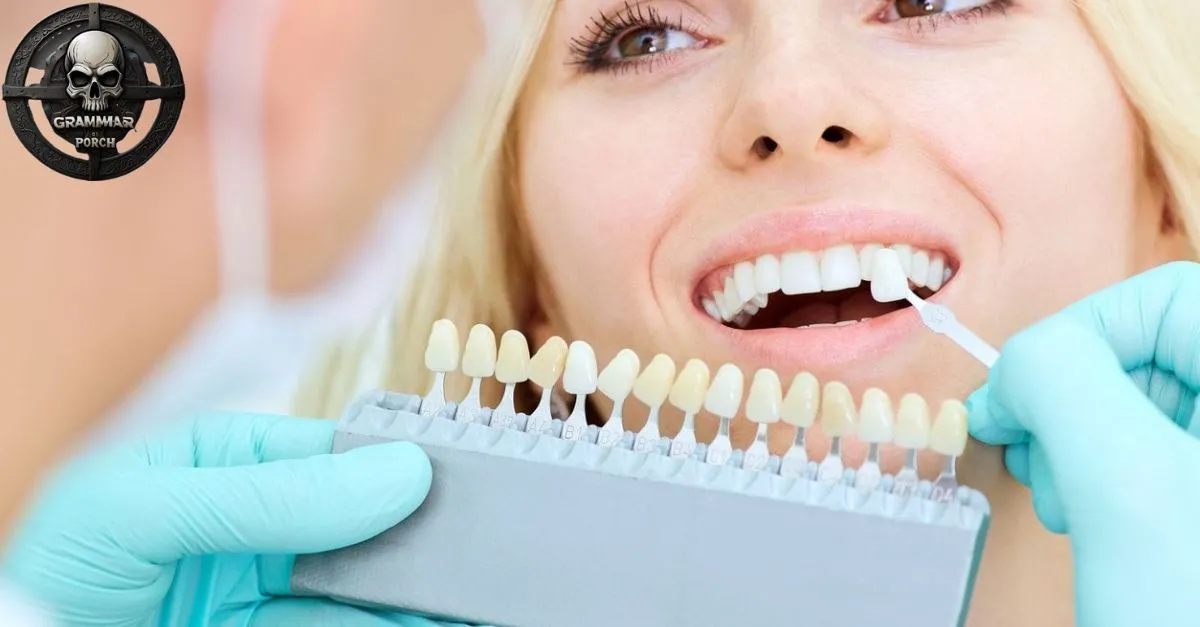
Yes, “teeth” is the accepted plural form of “tooth.” It is used universally in English-speaking countries and is recognized in both British and American English.
Definition:
Teeth are the plural form of tooth, referring to multiple teeth in the mouth.
Meaning:
The word “teeth” is used to describe all the teeth present in the mouth. Teeth serve various functions, such as chewing, biting, and helping with pronunciation.
Quick Summary
The correct plural of tooth is “teeth.” The term “tooths” is a common error and is not recognized in standard English. The transformation from tooth to teeth is due to an irregular plural noun rule in English, influenced by historical vowel shifts.
Understanding Teeth
Teeth are essential dental structures in the mouth of many mammals, including humans. They vary in shape and size depending on their purpose, such as incisors for cutting and molars for grinding. Teeth contribute significantly to oral hygiene and play a role in overall health by aiding in the digestion process.
Functions of Teeth:
| Type of Tooth | Function |
| Incisors | Cutting and slicing |
| Canines | Tearing |
| Premolars | Crushing |
| Molars | Grinding |
Forming the Plural of Tooth
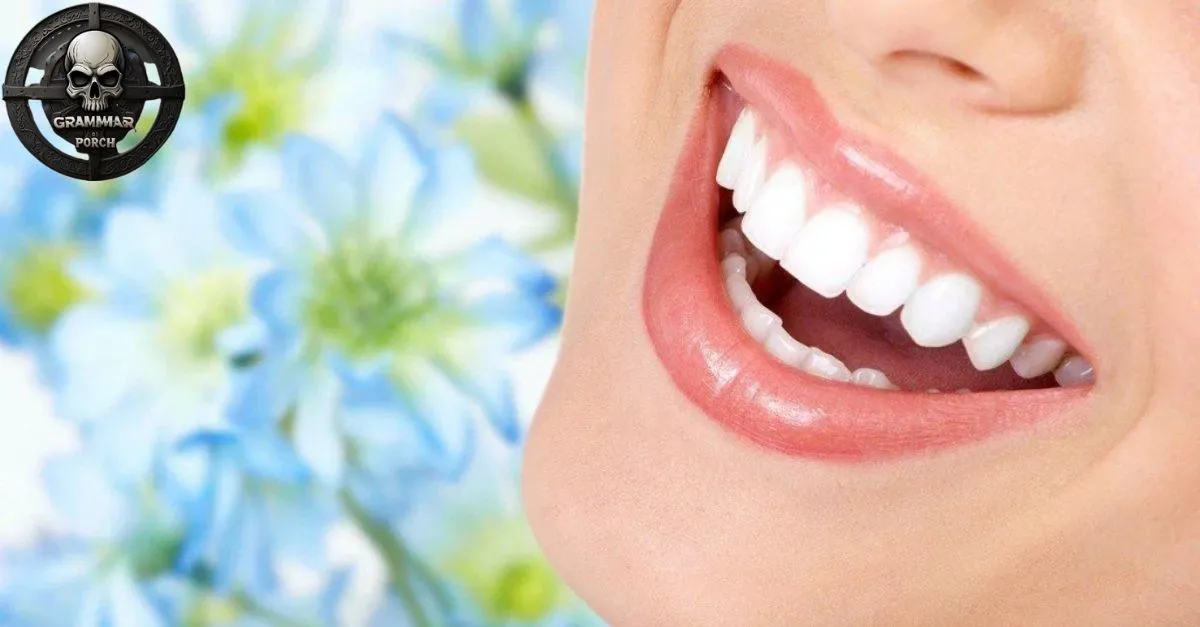
Forming the plural of tooth into “teeth” follows a rule unique to certain English nouns. This change, known as an i-umlaut or i-mutation, affects the vowel of the root word.
Instead of adding “s,” the vowel shifts from “oo” to “ee.” This linguistic evolution helps explain why English irregular plurals exist.
Is Tooth Plural Possessive?
Yes, you can make the plural of tooth possessive by adding an apostrophe. For instance, “The teeth’s enamel was hard” uses a plural possessive form correctly. For a single tooth, it would be “tooth’s” instead.
When to Use Tooth and Its Plural Form
Use “tooth” when referring to a single dental structure, and “teeth” when talking about multiple teeth. Knowing when to switch between singular and plural forms ensures correct usage in everyday conversation and writing.
Is Tooth a Countable or Uncountable Noun?
Tooth is a countable noun. You can count individual teeth in a mouth, which means you can say “one tooth” or “thirty-two teeth.”
Collective Noun for Tooth
A collective noun for teeth is a “set” of teeth, commonly used when talking about all teeth together in the mouth. For example, “a set of teeth” represents all the teeth as a group.
Tooth as a Part of Speech
In grammar, “tooth” functions as a noun. It represents a physical object and fits into sentences as a subject or object in a variety of contexts.
Pronunciation of Tooth
Tooth is pronounced with a long “oo” sound, as in /tuːθ/. Teeth is pronounced with a long “ee” sound, as in /tiːθ/.
Side-by-Side Comparison: Tooth or Teeth (Plural Form)
| Word | Form | Usage Example |
| Tooth | Singular | “I have a toothache.” |
| Teeth | Plural | “My teeth are white.” |
| Tooth | Singular | “She lost a tooth.” |
| Teeth | Plural | “He brushes his teeth twice a day.” |
| Tooth | Singular | “That tooth is sensitive.” |
| Teeth | Plural | “The dentist examined my teeth.” |
Which One is More Acceptable, Tooth or Teeth?
“Teeth” is universally accepted as the correct plural of tooth. “Tooth” is only used to refer to a single tooth.
Tooth in British English and American English
In both British and American English, the rules for “tooth” and “teeth” are identical. Both dialects use “teeth” as the plural form.
Common Mistakes and How to Avoid Them
A common error is using “tooths” instead of “teeth.” Remember that teeth follows an irregular rule, so be mindful when writing.
Trick to Remember the Difference
Think of “foot” and “feet” as a comparison. Just as “foot” changes to “feet” through an irregular plural form in English, “tooth” follows the same pattern. Both words undergo a vowel shift, a process known as i-mutation, which changes the vowel sound in the plural.
This shift is a feature of older stages of English and is not unique to these words. Understanding this pattern helps explain why “teeth” is the plural of “tooth,” just as “feet” is the plural of “foot,” despite their unusual forms in modern English.
Origins of Tooth and Teeth
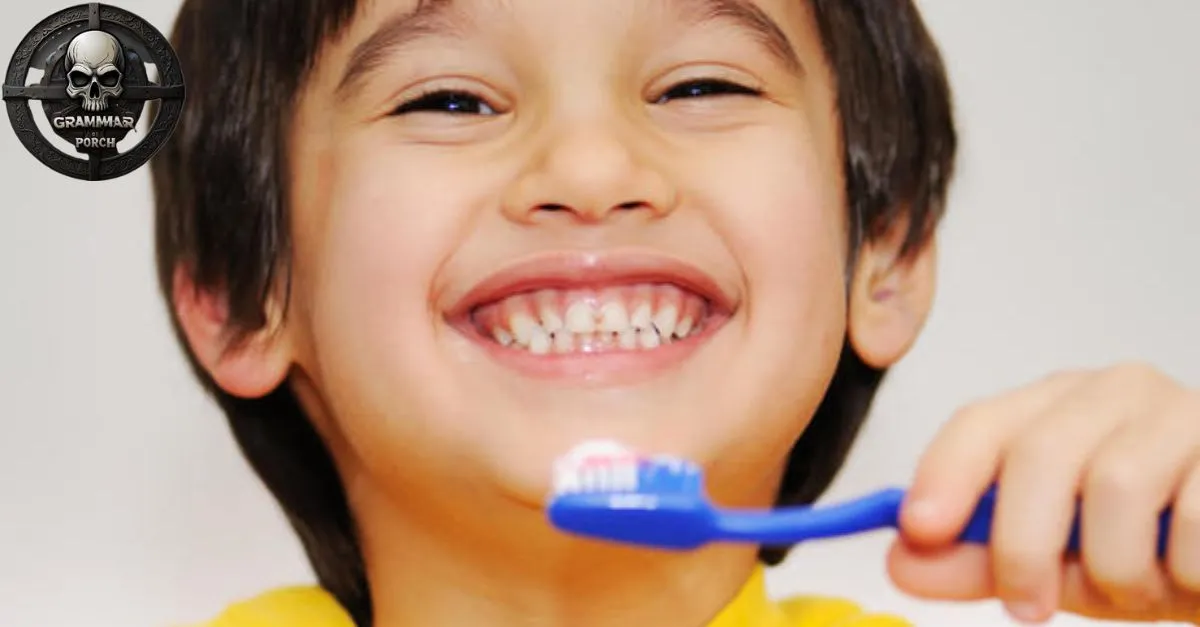
The origin of the word “tooth” can be traced back to Old English, where it was spelled “tōð.” This word shares roots with similar words in other Germanic languages, such as the Old High German “zāhan” and the Old Norse “tann.” Over time, the plural form of “tooth” evolved through a process known as i-mutation or vowel shift, a historical linguistic change that affected many words in the English language.
The plural form, “teeth,” emerged as a result of this shift, which changed the vowel sound. This shift was common in Old and Middle English, influencing many irregular plurals like “man” to “men” and “foot” to “feet.”
Synonyms of Tooth and Teeth
Tooth:
- Fang
- Molar
- Canine
- Incisor
- Bicuspid
- Premolar
- Crown
- Enamel
- Root
- Jawbone
Teeth:
- Dentition
- Pearly whites
- Set
- Molars
- Canines
- Choppers
- Gnashers
- Grinders
- Pearls
- Dental array
Sentences in Daily Use
“Tooth” in Daily Use
- I need to see a dentist because my tooth hurts.
- She has a tooth filling appointment tomorrow.
- He broke a tooth while eating hard candy.
- This tooth looks slightly crooked.
- I’m brushing every tooth carefully for better oral hygiene.
- The dentist pulled out his infected tooth.
- My wisdom tooth is finally coming in.
- There’s a cavity forming in my back tooth.
- She chipped a tooth while playing basketball.
- The tooth fairy left money under my pillow for my lost tooth.
“Teeth” in Daily Use
- She brushed her teeth twice a day to keep them healthy.
- The dentist said I need to floss between my teeth daily.
- His teeth were straightened after he got braces.
- Grinding your teeth at night can cause damage.
- The baby is teething, and his new teeth are coming in.
- It’s important to take care of your teeth to prevent cavities.
- The whitening treatment made her teeth look brighter.
- All her teeth are perfectly aligned now.
- He bit into the apple, and his teeth left clear marks.
- Dogs have sharp teeth for tearing food.
FAQs
What is the plural of tooth?
The plural is “teeth.”
Is tooth countable?
Yes, you can count teeth.
What is a collective noun for teeth?
A “set” of teeth.
How did tooth become teeth?
Due to a vowel shift in Old English.
Is tooths correct?
No, it’s incorrect.
Conclusion
The correct plural of “tooth” is “teeth,” which follows an irregular plural rule in English. Unlike most nouns that form their plurals by simply adding “s,” the word “tooth” undergoes a vowel change to become “teeth.” This shift is an example of a historical linguistic process called the i-mutation or vowel shift, which occurred in Old English.
Understanding that “teeth” is the correct plural helps avoid common mistakes, like mistakenly saying “tooths.” Knowing the right form also improves your English usage and ensures you speak and write accurately. So, next time you talk about multiple teeth, remember: it’s “teeth,” not “tooths.”

Larry is an experienced blogger with a passion for simplifying grammar. With years of expertise in writing and language, he shares insightful tips on punctuation, synonyms, and the intricacies of English grammar at **Grammar Porch**. His approachable style helps readers improve their writing skills with ease.
